Exploring Autism Resources Across the State
North Carolina is committed to providing a wide array of services, programs, and community initiatives to support individuals with autism and their families. From early diagnosis to adult support, the state’s comprehensive network aims to enhance quality of life, promote independence, and foster inclusion for all.
Statewide Autism Programs and Support Services
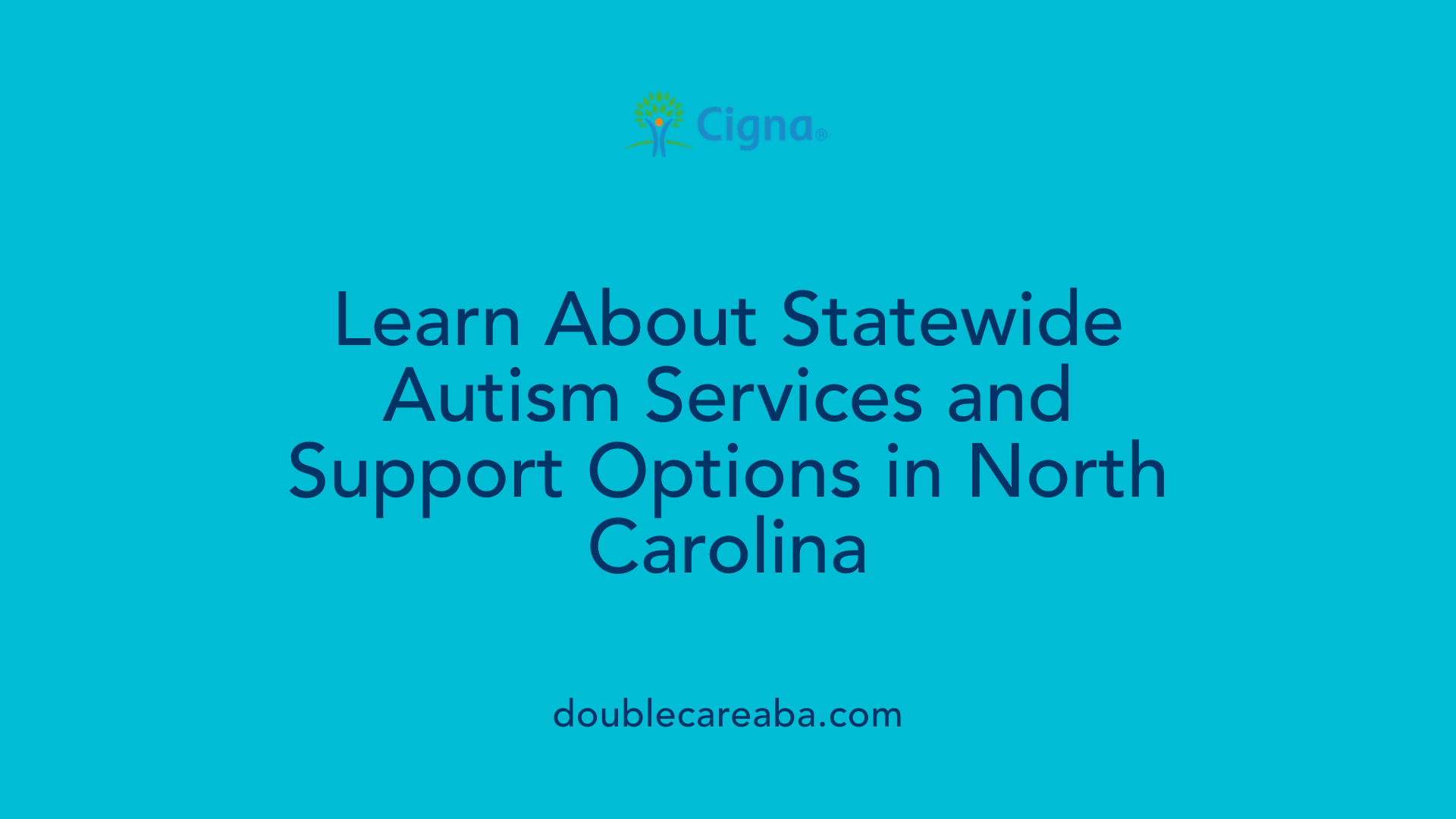
What autism support services and programs are available in North Carolina?
North Carolina offers a diverse range of programs and services designed to support individuals with autism and their families. The Autism Society of North Carolina (ASNC) stands out as a major organization providing community centers like IGNITE, which serve young adults with high-functioning autism or Asperger’s Syndrome in Davidson and Raleigh. These centers focus on helping young adults transition into adult life, fostering independence and community integration.
In addition to community centers, ASNC organizes over 50 free webinars covering topics such as behavior management, educational strategies, and transitioning to adulthood. They also support family engagement through resource specialists available in every county, all with personal experience in autism, ensuring tailored assistance statewide.
The TEACCH Autism Program, another cornerstone in North Carolina, offers clinical services that include diagnostic evaluations, family consultations, and employment support. Operating across the state, TEACCH plays a vital role in early diagnosis and ongoing support for individuals at various stages of life.
Research efforts are bolstered by the UNC Autism Research Center, which provides access to local resources, and the Carolina Institute for Developmental Disabilities, offering clinical services for those at risk or diagnosed with ASD. These institutions work collaboratively to advance understanding and treatment options.
Regional and local agencies such as the Children’s Developmental Service Agencies (CDSAs) and nonprofits like ABC of NC facilitate early intervention, diagnosis, and inclusive educational opportunities. Camps like Camp Royall, operated by ASNC, also offer summer, fall, and winter programs, providing fun and therapeutic activities for children and adults with autism.
Nationally recognized organizations like The Arc of North Carolina advocate for rights and inclusion, while agencies such as the NC Department of Public Instruction help incorporate autism-friendly practices in schools. Together, these programs ensure a comprehensive support network that fosters growth, inclusion, and independence for individuals on the autism spectrum throughout North Carolina.
| Organization | Services Offered | Target Audience | Location/Region |
|---|---|---|---|
| Autism Society of NC | Community centers, webinars, support specialists | Families, young adults, general public | Statewide |
| TEACCH Autism Program | Clinical services, diagnostics, employment | All ages, especially adolescents & adults | Statewide |
| UNC Autism Research Center | Research, resource access | Researchers, families, clinicians | Durham, NC |
| Carolina Institute for Developmental Disabilities | Clinical services, research | Individuals at risk or diagnosed with ASD | Chapel Hill, NC |
| Camp Royall | Summer and seasonal camps | Children, adults with autism | Cary, NC |
| The Arc of North Carolina | Advocacy, inclusion programs | Individuals with disabilities | Statewide |
| Children’s Developmental Service Agencies | Early intervention, diagnosis, therapy | Infants, toddlers, children | Local regions |
In essence, North Carolina’s array of autism services reflects a comprehensive approach that combines medical, educational, therapeutic, and community support, ensuring that individuals with autism can thrive in an inclusive environment.
Directory of Autism Organizations and Community Resources in North Carolina
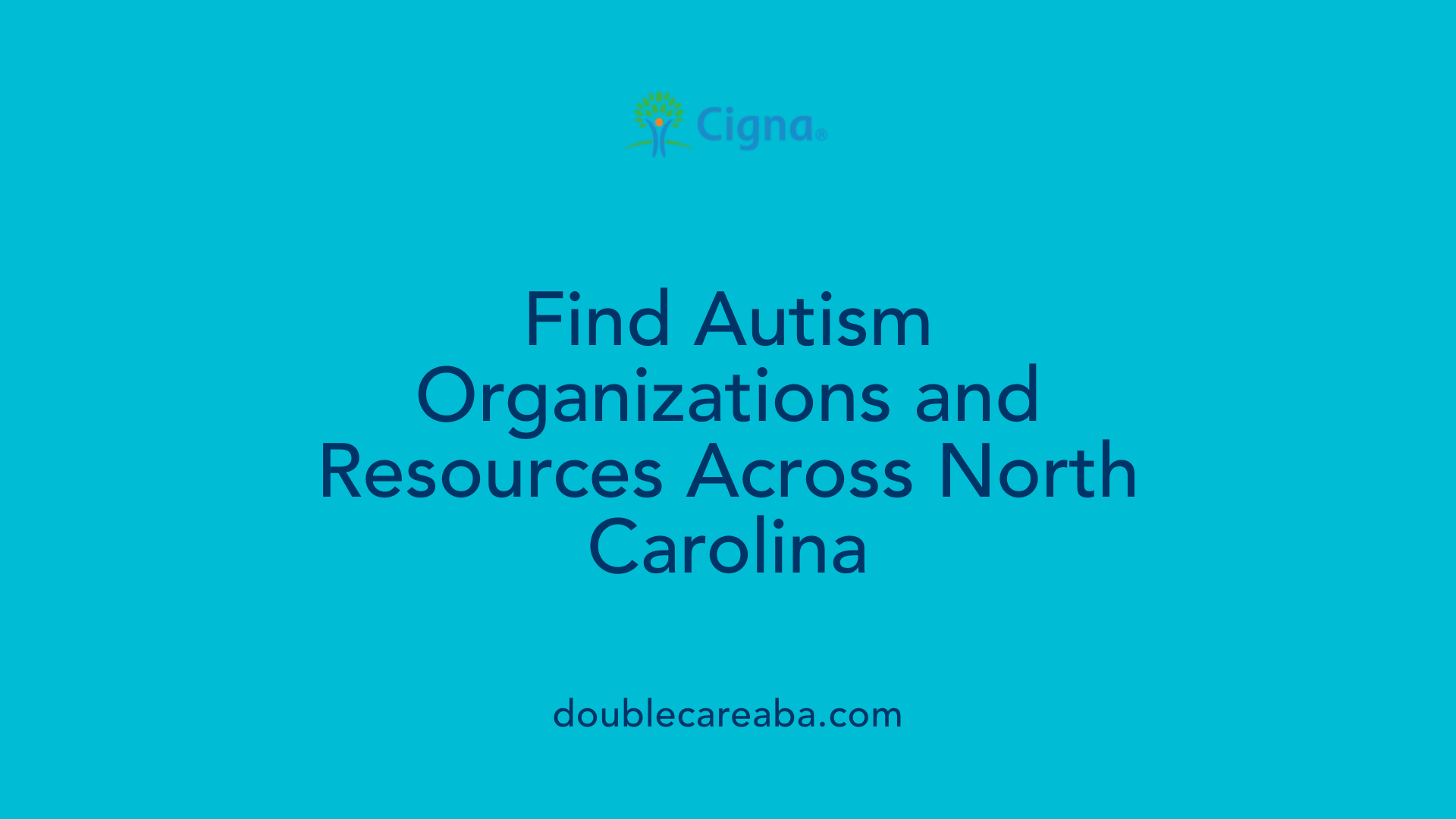
Where can I find a directory of autism organizations and community resources in North Carolina?
The Autism Society of North Carolina (ASNC) provides a comprehensive directory of autism organizations and community resources throughout the state. This resource includes listings of local service providers, support groups, and specialized programs tailored for individuals with autism and their families. The directory is accessible through ASNC's website, which offers detailed contact information for their Autism Resource Specialists (ARS). These specialists are experienced individuals intimately familiar with autism services and can assist families in navigating available local support options.
North Carolina boasts a wide array of community outreach initiatives supported by ASNC and partner organizations. These include community centers like IGNITE, which facilitate peer-to-peer support for young adults, and Camp Royall, the nation's oldest and largest camp dedicated to children and adults with autism.
In addition, the state hosts various organizations such as TEACCH, the UNC Autism Research Center, and regional centers like Aces for Autism in Greenville, NC. These organizations often collaborate to provide diagnostic services, behavioral therapy, vocational training, and family support programs.
To access the most updated and detailed directory of autism resources across North Carolina, visiting the official ASNC website or contacting their offices directly is recommended. This ensures families and professionals can connect with the right services tailored to their specific needs.
North Carolina’s commitment to supporting autism through widespread resources makes the directory a valuable tool for anyone seeking assistance and community engagement in the state.
Assessment, Evaluation, and Eligibility Resources
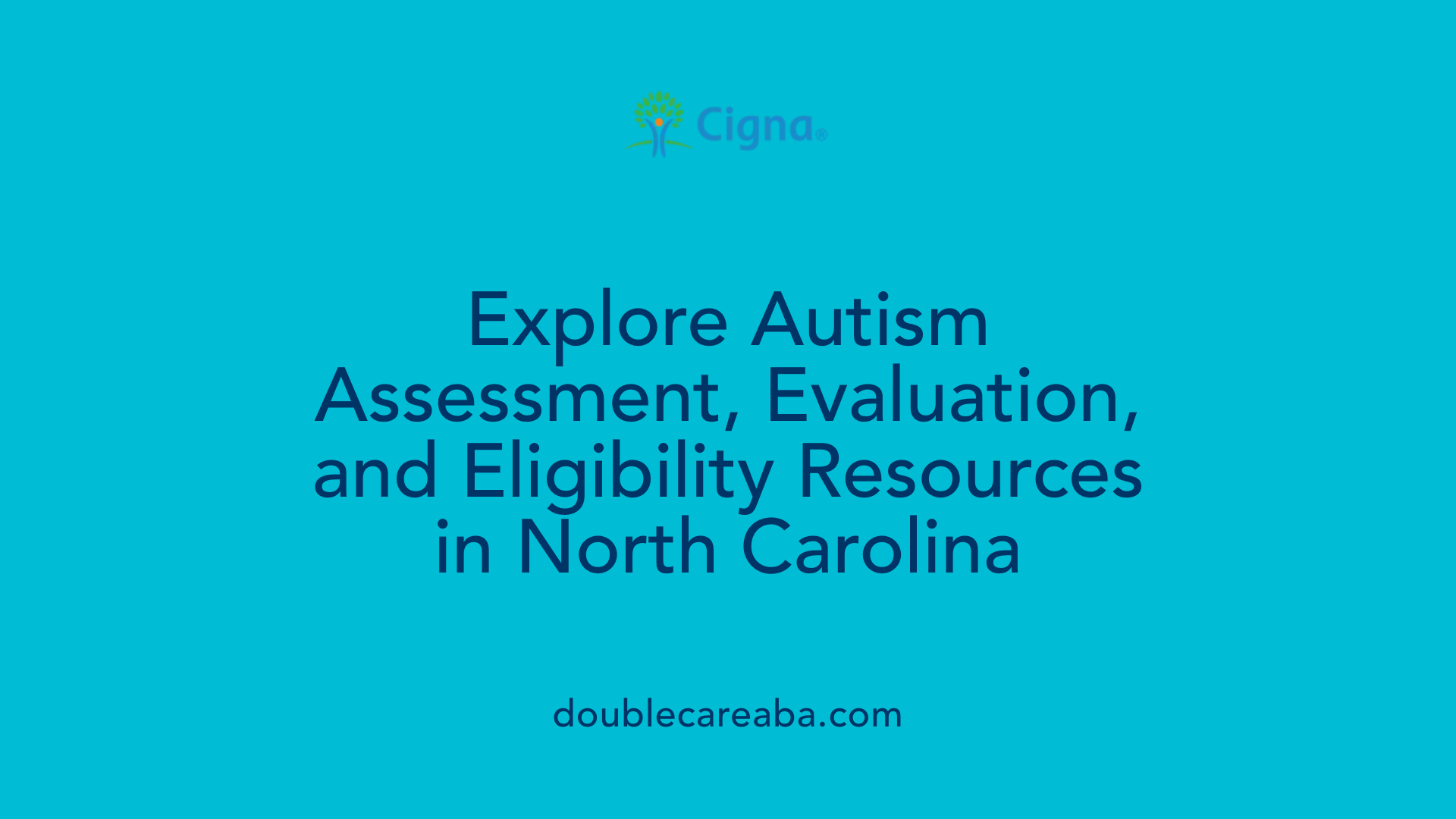
What resources are available for autism assessments, evaluations, and determining eligibility in North Carolina?
In North Carolina, there are several options to access autism assessments and evaluations. For young children from birth to age 3, the North Carolina Infant-Toddler Program collaborates with local Children’s Developmental Service Agencies (CDSAs). These agencies provide early screening, developmental evaluations, and early intervention services to help identify developmental delays, including autism.
For children aged 3 to 12, local school districts play a crucial role. Parents can request an evaluation through their child's school to determine eligibility for special education services under state and federal law. These evaluations assess various developmental areas, including communication, social skills, and behavior, to set up appropriate educational plans.
Specialized programs like the UNC TEACCH Autism Program also offer diagnostic services across different ages, including comprehensive assessments for adults. The TEACCH program focuses on tailored evaluations that inform intervention strategies.
Adults seeking an autism diagnosis can consult their healthcare providers for referrals to licensed psychologists or psychiatrists experienced in autism assessments. These professionals perform comprehensive evaluations and psychological testing to establish a diagnosis.
In addition, families and individuals benefit from the support of Autism Resource Specialists available in every North Carolina county. These specialists provide guidance on navigating assessment processes, eligibility standards, and accessing services. Insurance coverage, including Medicaid and private insurance, often helps cover these evaluations, especially when linked to therapy or support services.
Overall, North Carolina offers a network of resources aimed at early detection and ongoing assessment, helping ensure individuals receive appropriate support based on their unique needs.
Support Options for Individuals with Autism and Their Families
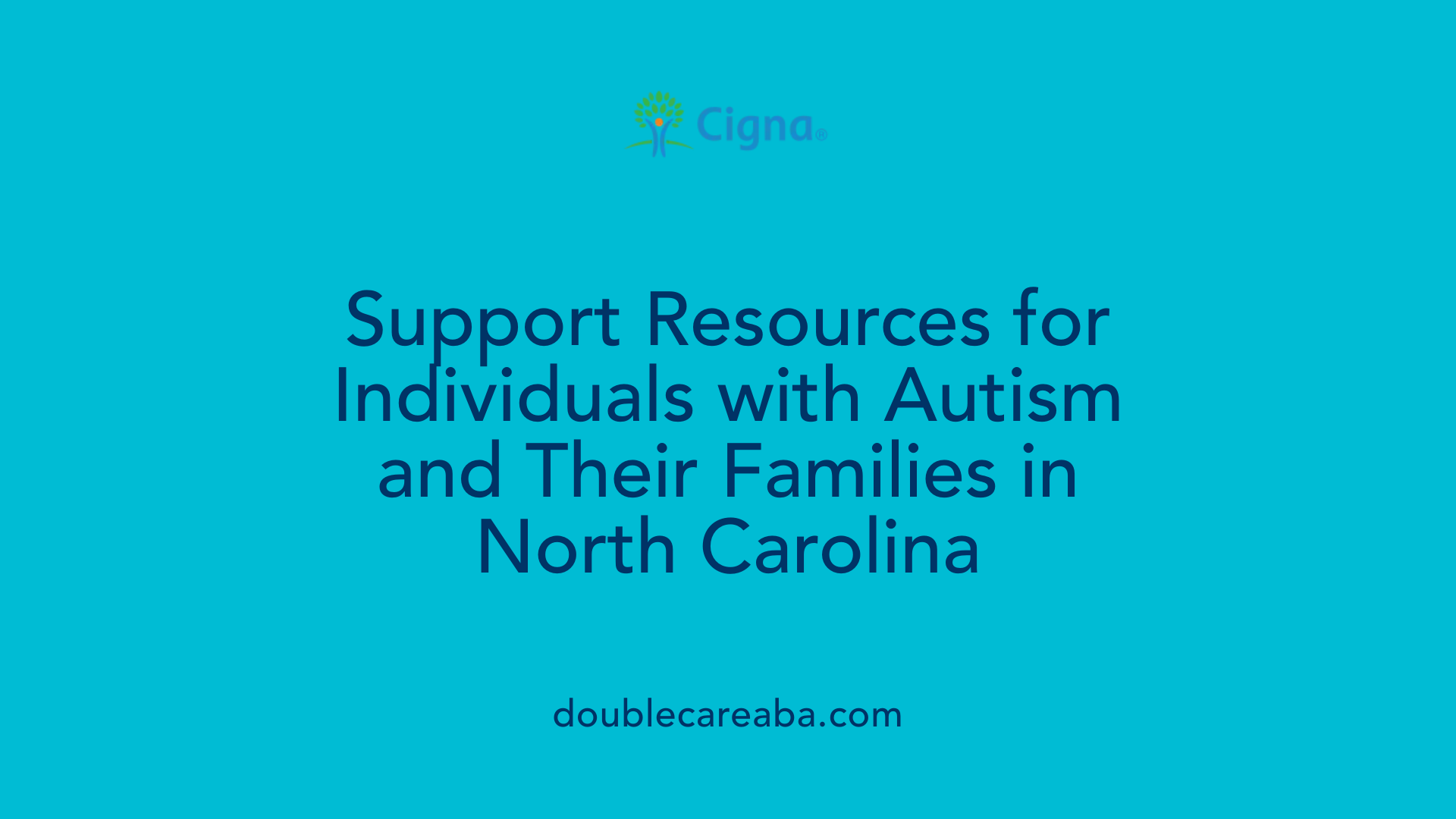
What support options are available for individuals with autism and their families in North Carolina, including healthcare, education, and advocacy?
In North Carolina, families and individuals affected by autism have access to a comprehensive network of support services, programs, and community resources. The Autism Society of North Carolina (ASNC) plays a central role in providing support, education, and advocacy across the state. They offer peer-to-peer programs such as IGNITE, which helps young adults with high-functioning autism transition into adult life. ASNC also hosts support groups, offers free webinars on various autism-related topics, and provides resources through Autism Resource Specialists located in every county.
Healthcare support in North Carolina includes access to specialized clinics and therapies. The TEACCH Autism Program offers diagnostic evaluations, family consultations, and employment services. The state supports treatments like Applied Behavior Analysis (ABA), with an ABA Clinic now open in Raleigh for children under seven. Medicaid coverage is available for autism therapies, including ABA for children under 21 and for adults through Research-Based Behavioral Health Treatment since July 2021.
Educational supports and evaluations are provided through organizations like the ABC of NC Child Development Center and school-based services. Families can access IEP rights guides and participate in locally tailored programs for their children’s educational success. North Carolina's public schools and specialized programs aim to ensure inclusion and appropriate educational planning.
Advocacy and community involvement are fostered through organizations such as the Arc of North Carolina, Disability Rights North Carolina, and local support organizations like Autism Charlotte. Camps like Camp Royall, the nation's largest autism-specific camp, offer summer, fall, and winter programs that promote social skills, independence, and fun.
Various regional programs, including TEACCH and regional developmental services, work together to support children and adults within North Carolina. Family support networks and regional developmental agencies facilitate collaboration and personalized support for each family’s unique needs.
Overall, North Carolina provides an array of options—from healthcare and educational services to advocacy groups and community programs—aimed at enriching the lives of individuals with autism and empowering their families to thrive.
Community Initiatives, Programs, and Support Agencies
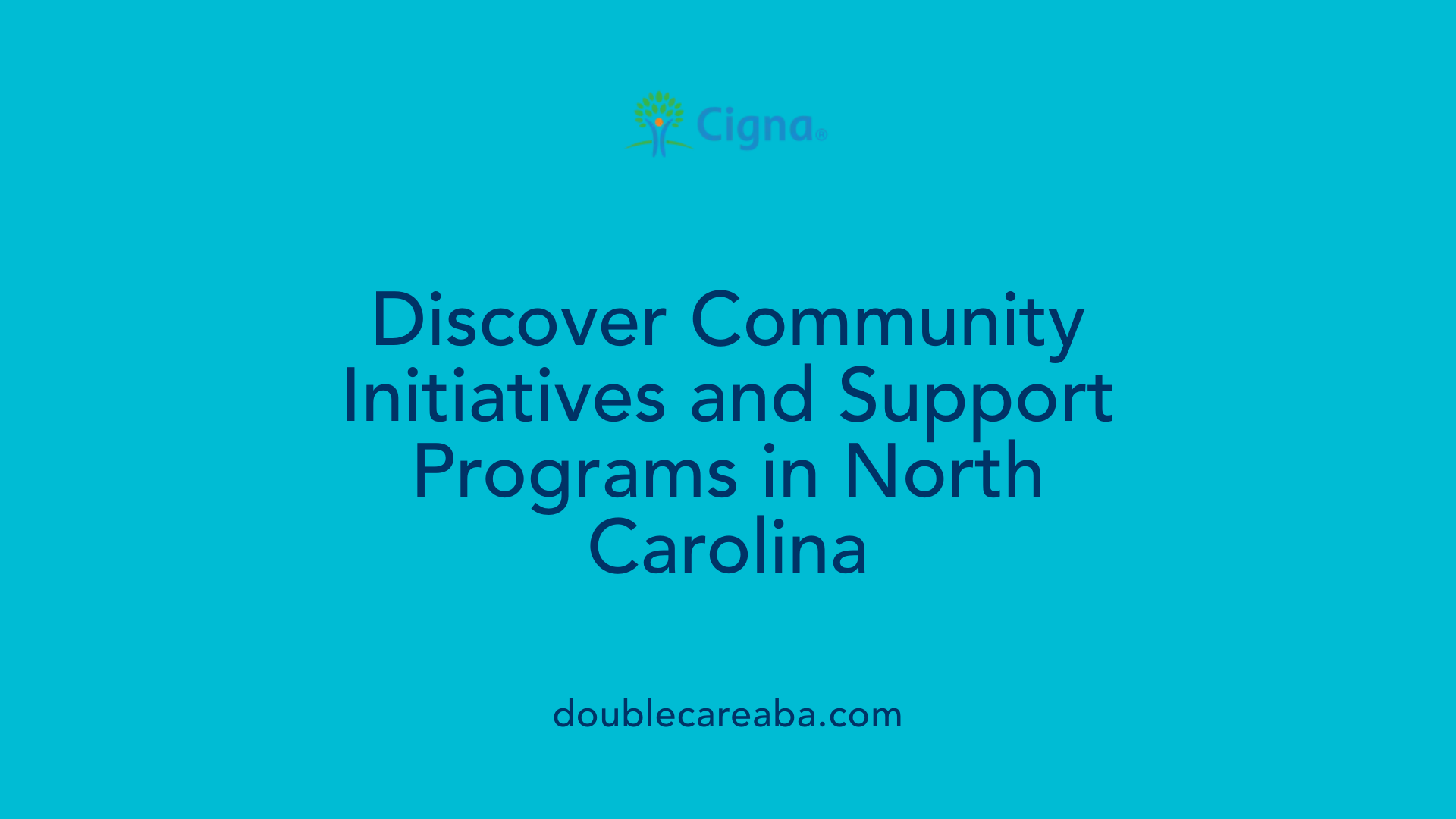 North Carolina offers a wide array of autism-related programs and community initiatives designed to support individuals on the spectrum and their families. One of the leading organizations is the Autism Society of North Carolina (ASNC), which promotes awareness, provides resources, and advocates for policy improvements. ASNC operates community centers like IGNITE, which serve young adults with high-functioning autism or Asperger's in Davidson and Raleigh, focusing on helping them transition into adult life.
North Carolina offers a wide array of autism-related programs and community initiatives designed to support individuals on the spectrum and their families. One of the leading organizations is the Autism Society of North Carolina (ASNC), which promotes awareness, provides resources, and advocates for policy improvements. ASNC operates community centers like IGNITE, which serve young adults with high-functioning autism or Asperger's in Davidson and Raleigh, focusing on helping them transition into adult life.
In addition to youth programs, ASNC supports early childhood intervention with services such as a new ABA (Applied Behavior Analysis) Clinic in Raleigh for children up to age 7. They also facilitate access to resources through Autism Resource Specialists available in every county, all possessing personal experience with autism. The organization hosts over 50 free webinars on topics like behavior management, education, and life transitions.
Camp Royall, operated by ASNC, stands as the nation’s oldest and largest autism camp, providing summer, fall, and winter programs for children and adults. Such camps are vital for community building and skill development. Moreover, ASNC advocates for autism-related policies; recent reports highlight state budget support for autism services passed through North Carolina’s Senate.
Regional and local organizations further bolster support networks. For example, the Arc of North Carolina advocates for people with disabilities and offers services like respite care and employment programs. The Family Support Network provides essential support and information for families, reinforcing community cohesion.
North Carolina’s public services also play a role. The Department of Public Instruction and the Division of Child and Family Wellbeing oversee educational and developmental programs, while agencies like NC DHHS Vocational Rehabilitation help with employment and independence.
Several specialized centers enhance autism services, including TEACCH, UNC's Autism Research Center, and the Charlotte-based Autism Charlotte, which focuses on community inclusion and family support. Funding and treatment options are also supported by Medicaid, private insurance, and state programs such as EPSDT, ensuring comprehensive care from early childhood through adulthood.
Together, these community initiatives and organizations form a robust network dedicated to improving the quality of life and fostering independence for individuals with autism across North Carolina.
North Carolina’s Commitment to Autism Support
North Carolina continues to lead the way in supporting individuals with autism and their families through a robust network of programs, community initiatives, and advocacy efforts. From early diagnosis to lifelong support, the state’s comprehensive approach ensures that autistic individuals have access to the resources they need to thrive. Continued investment and community engagement promise an even brighter future for the autism community across North Carolina.
References
- Autism Society of North Carolina | Find Help
- NCCARES - Resources | NC Office of Human Resources
- Local Resources - UNC Autism Research Center
- Support Agencies
- North Carolina Organizations
- Autism-Related Services in NC - DRNC
- Links to ASD Related Resources
- Aces for Autism
- Autism Resource Library
- Autism Charlotte













